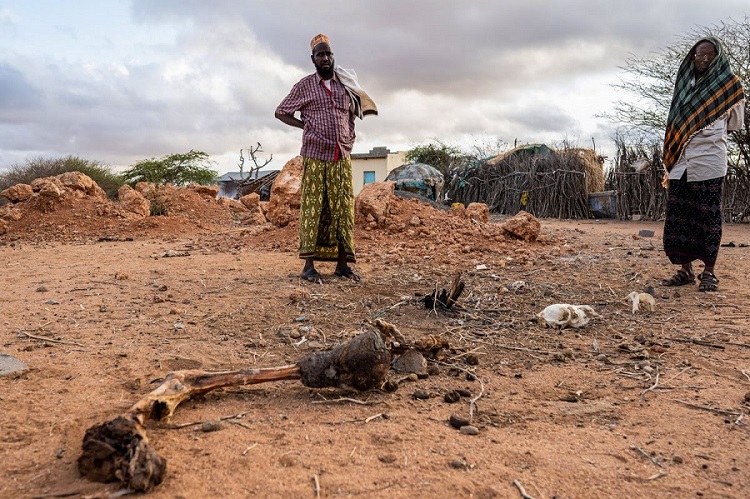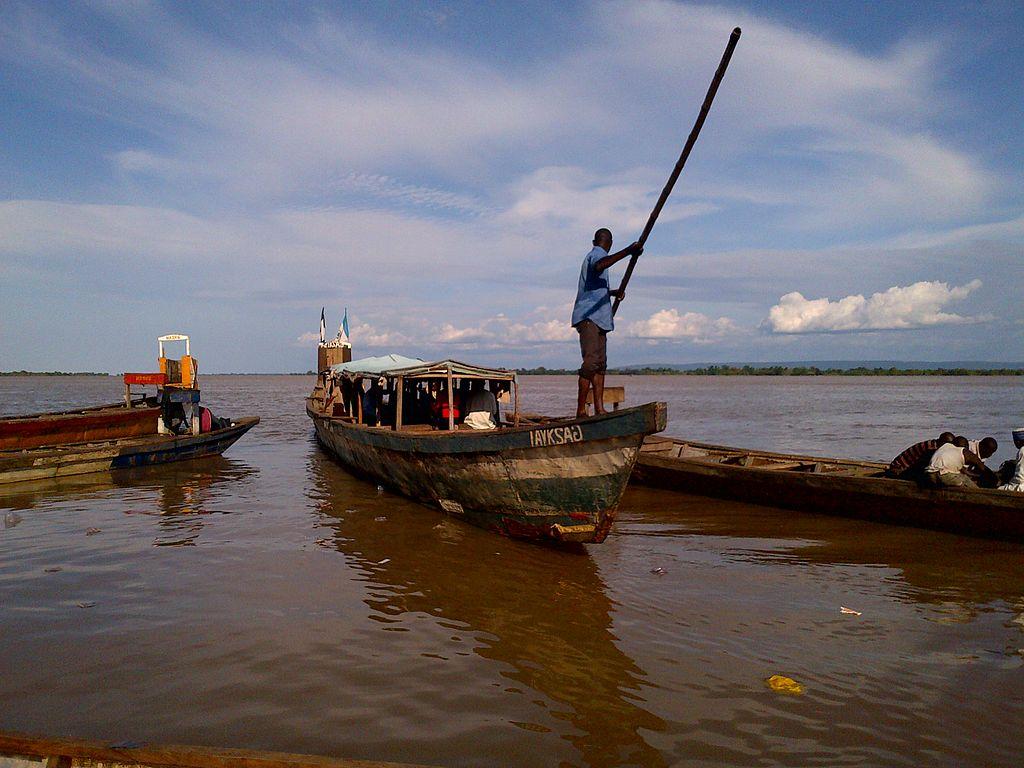
As each week passes with no rain, families like Denis Musya’s are finding it increasingly harder to survive.
They live in Kitui County, a few hundred kilometers east of Kenyan capital Nairobi.
Earlier this year, the UN’s Environment Programme (UNEP) said particular parts of Kenya, Somalia, Djibouti and Ethiopia were experiencing the “driest conditions and hottest temperatures since satellite record-keeping began.”
According to the 2022 Intergovernmental Panel on Climate Change (IPCC) report, climate change means the situation can only worsen with water shortages, the failure of agriculture and resulting loss of life.
UNEP says the African continent as a whole contributes just three percent of global emissions.
Yet, it says, at the same time the continent is unfairly bearing the heaviest burden of climate change, with heatwaves, droughts and other catastrophic weather events.
In Kenya alone, 4.1 million people require food assistance and 1.1 million of this are in an emergency situation, says the WFP.
Musya’s family have experienced three consecutive years with little rain.
Rising food prices and shortages are forcing many like Musya into the forests to hunt and scavenge for fruit and meat to feed their families.
Musya wakes up every early in the morning to set traps for whatever he can catch.
An antelope or a gazelle would be welcome, but he says he’s grateful for whatever he comes by.
“A kilogram of maize is going for 100 shillings (83 cents USD), and a liter of cooking oil is 400 shillings ($3.31 USD). So, in a day I am supposed to spend 500 shillings. But because that budget is impossible for now,” he says.
“I venture into the forest scavenging for whatever is available, may it be a gazelle, hare, honey badger, antelope or any animal snared by my traps. In case I don’t get any, I pass by the wild fruits like baobabs and collect some so that we can boil them and just fill the stomach.”
Musya says there’s more pressure on biodiversity and the local environment because more families are getting whatever food they can.
“These wild animals are having a tough time because they are now being used as the only source of food. Because if you can’t afford food and wild fruits are exhausted, you will enter into the forest and the wild animals will be at risk of extinction. And this may not be good for the ecosystem,” he says.
The World Food Programme (WFP) says the number of people seeking emergency assistance in the region over the last couple of years has grown by millions, especially those who live in areas known as “Arid and Semi-Arid Lands” or ASALs.
“The long rains have basically failed, probably we will see an increase to this number. So, it’s a really critical stage, and the impact of this drought is extremely serious especially in the ASALs (Arid and Semi-Arid Lands),” explains Felix Okech, head of the WFP’s Refugees and Relief Operations in Kenya.
According to Okech, the nutritional value of what people manage to get isn’t always adequate, and this will impact their health in the long-term.
“We find situations where people reduce their intake, amount of food they take in, which impacts on their health and also nutrition, we find people starting to pick on certain foods basically to fill the tummy rather than also provide for the nutrition requirements, and also people resulting to trying to access different sorts of food like you know, getting food from the wild or hunting wild game which they have not done before,” says Okech.
Back in Kitui County, it’s lunchtime for the Musya family.
Denis’ wife Rodah Musya makes whatever she can from what is brought home.
She says: “Now, we no longer seek to meet our dietary requirements. Whatever my husband brings from the forest is what we eat. We just boil and eat what’s there at the end of the day. We are waiting for the rains and if they fail, we have no other option, and worst still we don’t have seeds to plant.”
“Some of the fruits we get from the forest are poisonous. And we must boil them and drain the first water because they are very poisonous. But today we are having baobab. Am soaking and boiling them for lunch, and in the evening, we will have meat from last night’s catch,” adds Rodah.
For this family and many others, there is no real hope in sight.
The World Food Programme says the experiences of the Musya’s is being repeated across East Africa.
“Close to 20 million people will soon be impacted on with the drought situation, the numbers are growing,” says Okech.











